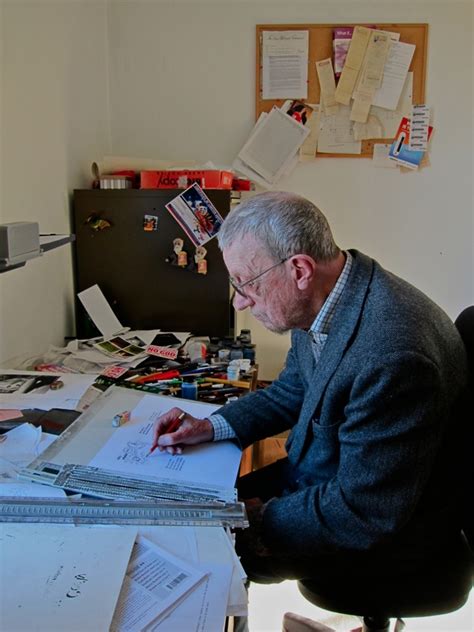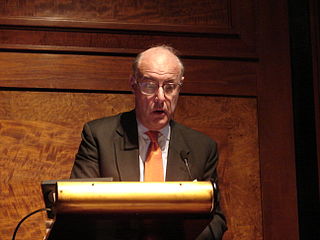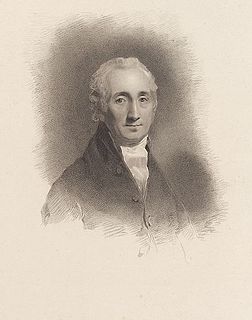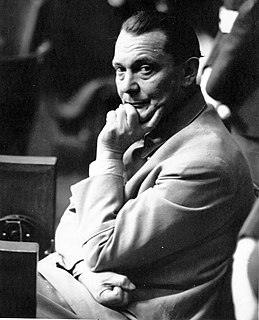Top 273 Monarchy Quotes & Sayings - Page 5
Explore popular Monarchy quotes.
Last updated on April 19, 2025.
In comparison to the French Revolution, the American Revolution has come to seem a parochial and rather dull event. This, despitethe fact that the American Revolution was successful--realizing the purposes of the revolutionaries and establishing a durable political regime--while the French Revolution was a resounding failure, devouring its own children and leading to an imperial despotism, followed by an eventual restoration of the monarchy.
The most successful of the Tartar princes assumed the military command, to which he was entitled by the superiority either of merit or of power. He was raised to the throne by the acclamations of his equals; and the title of Khan expresses, in the language of the North of Asia, the full extent of the regal dignity. The right of hereditary succession was long confined to the blood of the founder of the monarchy; and at this moment all the Khans, who reign from Crimea to the wall of China, are the lineal descendants of the renowned Zingis.
When a monarchy gradually transforms itself into a republic, the executive power there preserves titles, honors, respect, and even money long after it has lost the reality of power. The English, having cut off the head of one of their kings and chased another off the throne, still go on their knees to address the successors of those princes. On the other hand, when a republic falls under one man's yoke, the ruler's demeanor remains simple, unaffected, and modest, as if he had not already been raised above everybody.
Culture implies all which gives the mind possession of its own powers, as languages to the critic, telescope to the astronomer. Culture alters the political status of an individual. It raises a rival royalty in a monarchy. 'Tis king against king. It is ever a romance of history in all dynasties--the co-presence of the revolutionary force in intellect. It creates a personal independence which the monarch cannot look down, and to which he must often succumb.
Thus, experience has ever shown, that education, as well as religion, aristocracy, as well as democracy and monarchy, are, singly, totally inadequate to the business of restraining the passions of men, of preserving a steady government, and protecting the lives, liberties, and properties of the people . . . . Religion, superstition, oaths, education, laws, all give way before passions, interest, and power, which can be resisted only by passions, interest, and power.
These, then, are the four kinds of royalty. First the monarchy of the heroic ages; this was exercised over voluntary subjects, but limited to certain functions; the king was a general and a judge, and had the control of religion The second is that of the barbarians, which is a hereditary despotic government in accordance with law. A third is the power of the so-called Aesynmete or Dictator; this is an elective tyranny. The fourth is the Lacedaemonian, which is in fact a generalship, hereditary and perpetual.
There are still two forms besides democracy and oligarchy; one of them is universally recognized and included among the four principal forms of government, which are said to be (1) monarchy, (2) oligarchy, (3) democracy, and (4) the so-called aristocracy or government of the best. But there is also a fifth, which retains the generic name of polity or constitutional government.
America is not a democracy, it's an absolute monarchy ruled by King Kid. In a nation of immigrants, the child is automatically more of an American than his parents. Americans regard children as what Mr. Hudson in Upstairs, Downstairs called betters. Aping their betters, American adults do their best to turn themselves into children. Puerility exercises droit de seigneur everywhere.
This rationale, which justified the mixed constitution of Great Britain, might have made some sense in 1776, but by 1787 most American thinkers had come to believe that all parts of their balanced governments represented in one way or another the sovereign people. They had left the Aristotelian idea of mixed estates - monarchy, aristocracy, and democracy - way behind. [John] Adams had not, and his stubbornness on this point caused him no end of trouble.
In a democracy, every ordinary citizen is effectively a king--but a king in a constitutional democracy, a monarch who decides only formally, whose function is merely to sign off on measures proposed by an executive administration. This is why the problem with democratic rituals is homologous to the great problem of constitutional monarchy: how to protect the dignity of the king? How to maintain the appearance that the king effectively makes decisions, when we all know this not to be true?
I have often asked Americans wherein they consider their freedom superior to that of the English, but have never found them able to indicate a single point in which the individual is worse off in England as regards his private civil rights or his general liberty of doing and thinking as he pleases. They generally turn the discussion to social equality, the existence of a monarchy and hereditary titles and so forth - matters which are, of course, quite different from freedom in its proper sense.
I knew she was a party girl. The book I liked most on her was called [princess] Margaret: A Life of Contrasts and getting to know her, it was how conflicted her position and her internal life - or self - was. She is so fiercely royal and so fiercely "sister of the queen" or "daughter of the king" because that is her identity and it's all she's ever known. And at the same time she is struggling to push the boundaries and to break away from it, to be different or to modernize the monarchy, to turn it on its head.
Anarchism is opposed to states, armies, slavery, the wages system, the landlord system, prisons, monopoly capitalism, oligopoly capitalism, state capitalism, bureaucracy, meritocracy, theocracy, revolutionary governments, patriarchy, matriarchy, monarchy, oligarchy, protection rackets, intimidation by gangsters, and every other kind of coercive institution. In other words, anarchism opposes government in all its forms.
Monarchy can easily be "debunked," but watch the faces, mark well the debunkers. These are the men whose taproot in Eden has been cut: whom no rumour of the polyphony, the dance, can reach - men to whom pebbles laid in a row are more beautiful than an arch. Where men are forbidden to honour a king they honour millionaires, athletes or film stars instead: For spiritual nature, like bodily nature, will be served; deny it food and it will gobble poison.
More attention should have been given to the fundamental transformation which took place during Queen Victoria's reign, from ruling sovereign to constitutional monarch. Again, gender mattered. If Albert had lived, it seems clear that he would have resisted that development much more tenaciously, which the gradual emasculation (and feminization) of monarchy was probably more easily accomplished when a woman was on the throne.
Politics have always covered two distinct kinds of problems: problems of administrative routine, and those that may be called 'questions of the moment.' A question of the moment is, indeed, a substitute for some notion, such as the idea of God, or hereditary monarchy, or national glory, that has hitherto acted as a symbol of human co-ordination. It provides no new positive certainty to replace the discredited certainty, but is what the name implies: the raising of a question which the old certainty no longer answers.
Democracy cannot exist as a permanent form of government. It can only exist until the voters discover they can vote themselves largesse out of the public treasure. From that moment on, the majority always votes for the candidate promising the most benefit from the public treasury, with the result that democracy always collapses over a loose fiscal policy, always to be followed by a dictatorship, and then a monarchy.
We can now say with considerable confidence that the Bible is not a history of anyone's past.... The Bible's "Israel" is a literary fiction... Not only have Adam and Eve and the flood story passed over to mythology, but we can no longer talk about a time of the patriarchs. There never was a "United Monarchy" in history and it is meaningless to speak of pre-exilic prophets and their writings... The Bible deals with the origin traditions of a people who never existed as such
Anyone who has walked through the deserted palaces of Versailles or Vienna realise how much of a part of the life of a nation is lost when a monarchy is abolished. If buckingham palace and windsor castle were transformed into museums, if one politician competed against another for president of the republic, Britain would be a sadder and less interesting place. Our politicians are not men such as could challenge more than a thousand years of history.
The plague of mankind is the fear and rejection of diversity: monotheism, monarchy, monogamy and, in our age, monomedicine. The belief that there is only one right way to live, only one right way to regulate religious, political, sexual, medical affairs is the root cause of the greatest threat to man: members of his own species, bent on ensuring his salvation, security, and sanity.
In on summer they have done their business... they have completely pulled down to the ground their monarchy, their church, their nobility, their law, their revenue, their army, their navy, their commerce, their arts, and their manufactures... destroyed all balances and counterpoises which serve to fix a state and give it steady direction, and then they melted down the whole into one incongrous mass of mob and democracy... the people, along with their political servitude, have thrown off the yoke of law and morals.
To resume, in a few words, the system of the Imperial government, as it was instituted by Augustus, and maintained by those princes who understood their own interest and that of the people, it may be defined an absolute monarchy disguised by the forms of a commonwealth. The masters of the Roman world surrounded their throne with darkness, concealed their irresistible strength, and humbly professed themselves the accountable ministers of the senate, whose supreme decrees they dictated and obeyed.
There are important arguments to be made about the relative merits of an hereditary or an elected head of state: but not at the level of the human frailties of particular monarchs or presidents. No one seriously contends that the American presidency should be abolished because Bill Clinton is a self-confessed adulterer. So why should the abolition of the British monarchy be contemplated because the same is true of Prince Charles?
The monarchy that I hand over to my son is not going to be the same one that I have inherited. ... There is a tendency by a lot of officials to hide behind the king. And it's about time that officials take their responsibility and are responsible in front of the people. Because today, if you're appointed by the king, they don't feel that they're responsible for the people. If you have a government that is elected, they need to do the hard work — because if they don't, they won't be around the next time the ballot box is open.
It is not, perhaps, unreasonable to conclude, that a pure and perfect democracy is a thing not attainable by man, constituted as he is of contending elements of vice and virtue, and ever mainly influenced by the predominant principle of self-interest. It may, indeed, be confidently asserted, that there never was that government called a republic, which was not ultimately ruled by a single will, and, therefore, (however bold may seem the paradox,) virtually and substantially a monarchy.
It’s unlikely to change – there’s nothing in King Salman’s past as governor of Riyadh for about forty years that suggests that he was particularly a reformer, not on the role of women, not on democratic development. There’s been a rumor in the last couple of days that he said to someone in an e-mail that he’s in favor of a constitutional monarchy, but I would be surprised if the level of repression started to go down … I think the kind of thing that we would view as significant reforms is unlikely.
The Constitution is said to have beautiful features; but when I come to examine these features, Sir, they appear to me horribly frightful. Among other deformities, it has an awful squinting - it squints towards monarchy. And does not this raise indignation in the breast of every true American? Your president may easily become king. Where are your checks in this government? I would rather infinitely - and I am sure most of this convention are of the same opinion - have a king, lords, and commons than a government so replete with such insupportable evils.
In the Laws it is maintained that the best constitution is made up of democracy and tyranny, which are either not constitutions at all, or are the worst of all. But they are nearer the truth who combine many forms; for the constitution is better which is made up of more numerous elements. The constitution proposed in the Laws has no element of monarchy at all; it is nothing but oligarchy and democracy, leaning rather to oligarchy.
The three most ancient opinions concerning God are Anarchia, Polyarchia, and Monarchia. The first two are the sport of the children of Hellas, and may they continue to be so. For Anarchy is a thing without order; and the Rule of Many is factious, and thus anarchical, and thus disorderly. For both these tend to the same thing, namely disorder; and this to dissolution, for disorder is the first step to dissolution. But Monarchy is what we hold in honor.
Hereditary monarchy offers numerous advantages for America. It is the only form of government able to unify a heterogeneous people. Thanks to centuries of dynastic marriage, the family tree of every royal house is an ethnic grab bag with something for everybody. We need this badly; America is the only country in the world where you can suffer culture shock without leaving home. We can't go on much longer depending upon disasters like Pearl Harbor and the Iranian hostage-taking to "bring us together.
The political structure in different countries has different origins, different developments. Something which suits one country extremely well would perhaps fail completely in another. Germany, through the long centuries of monarchy, has always had a leadership principle. ... The position of the Catholic Church rests now, as before, on the clear leadership principle of its hierarchy. And I think I can also say that of Russia, too.
The history of mankind is a history of the subjugation and exploitation of a great majority of people by an elite few by what has been appropriately termed the 'ruling class'. The ruling class has many manifestations. It can take the form of a religious orthodoxy, a monarchy, a dictatorship of the proletariat, outright fascism, or, in the case of the United States, corporate statism. In each instance the ruling class relies on academics, scholars and 'experts' to legitimize and provide moral authority for its hegemony over the masses.
Remember, democracy never lasts long. It soon wastes, exhausts, and murders itself. There never was a democracy yet that did not commit suicide. It is in vain to say that democracy is less vain, less proud, less selfish, less ambitious, or less avaricious than aristocracy or monarchy. It is not true, in fact, and nowhere appears in history. Those passions are the same in all men, under all forms of simple government, and when unchecked, produce the same effects of fraud, violence, and cruelty.

























